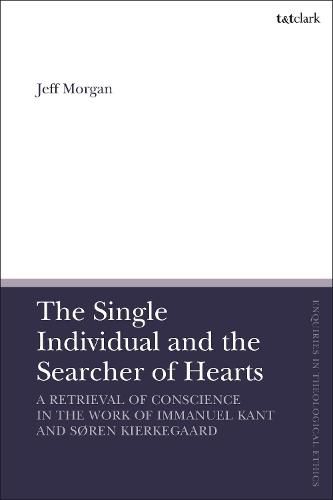Readings Newsletter
Become a Readings Member to make your shopping experience even easier.
Sign in or sign up for free!
You’re not far away from qualifying for FREE standard shipping within Australia
You’ve qualified for FREE standard shipping within Australia
The cart is loading…






Jeff Morgan argues that both Immanuel Kant and Soren Kierkegaard think of conscience as an individual’s moral self-awareness before God, specifically before the claim God makes on each person. This innovative reading corrects prevailing views that both figures, especially Kant, lay the groundwork for the autonomous individual of modern life - that is, the atomistic individual who is accountable chiefly to themselves as their own lawmaker.
This book first challenges the dismissal of conscience in 20th-century Christian ethics, often in favour of an emphasis on corporate life and corporate self-understanding. Morgan shows that this dismissal is based on a misinterpretation of Immanuel Kant’s practical philosophy and moral theology, and of Soren Kierkegaard’s second authorship. He does this with refreshing discussions of Stanley Hauerwas, Oliver O'Donovan, and other major figures. Morgan instead situates Kant and Kierkegaard within a broad trajectory in Christian thought in which an individual’s moral self-awareness before God, as distinct from moral self-awareness before a community, is an essential feature of the Christian moral life.
$9.00 standard shipping within Australia
FREE standard shipping within Australia for orders over $100.00
Express & International shipping calculated at checkout
Jeff Morgan argues that both Immanuel Kant and Soren Kierkegaard think of conscience as an individual’s moral self-awareness before God, specifically before the claim God makes on each person. This innovative reading corrects prevailing views that both figures, especially Kant, lay the groundwork for the autonomous individual of modern life - that is, the atomistic individual who is accountable chiefly to themselves as their own lawmaker.
This book first challenges the dismissal of conscience in 20th-century Christian ethics, often in favour of an emphasis on corporate life and corporate self-understanding. Morgan shows that this dismissal is based on a misinterpretation of Immanuel Kant’s practical philosophy and moral theology, and of Soren Kierkegaard’s second authorship. He does this with refreshing discussions of Stanley Hauerwas, Oliver O'Donovan, and other major figures. Morgan instead situates Kant and Kierkegaard within a broad trajectory in Christian thought in which an individual’s moral self-awareness before God, as distinct from moral self-awareness before a community, is an essential feature of the Christian moral life.